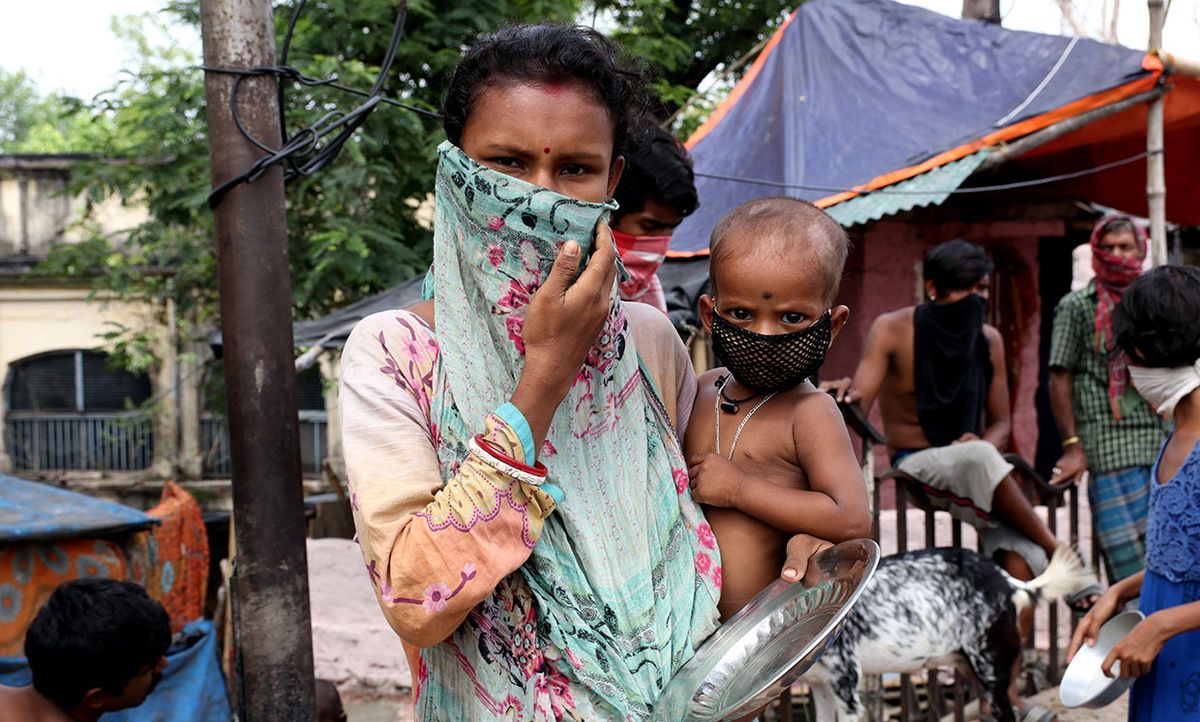In reaction to the rapid spread of COVID-19, over 100 countries worldwide have instituted lockdowns, restricting movement for billions of people. Those restrictions are having major effects, such as a global food crisis, on economically vulnerable populations.
Now, a group of 73 volunteer engineers, students, and policy experts are working to identify and quantify unintended consequences of the COVID-19 lockdown on vulnerable populations.
For two months, the group, organized by Palo Alto, Calif.–based Omdena, will scour publicly available data sources and apply data visualization and AI tools to investigate how government policies are impacting four effects of the pandemic lockdowns: reduced access to health care, wage loss, employment loss, and domestic abuse.
“All over the world, from the media to state leaders, we are hearing a lot of noise and a lot of propaganda, amidst a lot of facts,” says Baidurja Ray, a computational scientist and engineer based in Texas who is participating in the effort. “I hope this project provides a purely factual and data-driven look into the effect of government policies on their citizens.”
Omdena, formed in early 2019, is a platform that operates two-month-long projects applying AI to social problems. “When people think of AI, they most likely think about autonomous cars and robots,” says Rudradeb Mitra, CEO of Omdena. “We think the biggest power of AI is solving the problems for people at the bottom of the pyramid.”
To date, the organization has completed 14 projects, such as building an interactive map for a Nigerian NGO to show policymakers the areas with high demand for electricity and suitability for solar-panel installation. Omdena relies on bottom-up collaboration, which in practice means putting a bunch of domain experts and enthusiasts with technical skills into a Slack chat room and telling them to solve a problem.
The Coronavirus Policy AI project began 24 March and will conclude 19 May, with plans to publish results at the end of May. When the project was announced—with no paid advertising, just posted on social media—over 150 people applied to participate, including large numbers of students and newly graduated engineers, but also folks with established careers looking to apply their skills for the public good.
Elke Klaassen, a data scientist in the Netherlands, saw a post about the project on LinkedIn and decided to apply. “The current situation with the COVID-19 pandemic is something I have never experienced before, and I was curious to see if we [can] use data to get a better grip on the situation worldwide,” she says.
Based on applicants’ motivations and skill sets, Mitra invited 73 of them from 27 countries to participate and set the group up with the project goals, a Slack channel, weekly Zoom calls, and a GitHub repository.
Then, it was off to the races.
Currently, project members have self-divided into the four task areas and published some early analysis. Each task group is gathering policy information and data from 10 to 15 countries, then applying data analysis and machine learning tools to identify the short-term effects of lockdown policies.

“At the halfway stage of this work, we have already started gaining some insights for certain countries, while also trying to gather hard-to-come-by data for some others,” says Ray, task manager for the group looking at the effect of COVID-19 policies on unemployment. “We are realizing the importance of governments providing open and reliable data for this kind of effort to succeed.”
Mitra hopes the results will help governments make decisions based on data, rather than opinion or feeling, when the second wave of the pandemic arrives, likely this fall. “We’re not here to prove what is right and wrong,” says Mitra. “All we want to do is build models that give policymakers an ability to know the effects of a given policy on vulnerable populations, so in the future they can make more data-driven decisions.”
Omdena’s next project, on the student debt crisis, kicks off on 30 April.
Megan Scudellari is an award-winning freelance journalist based in Boston, Massachusetts, specializing in the life sciences and biotechnology. She was previously a health columnist for the Boston Globe and has contributed to Newsweek, Scientific American, and Nature, among others. She is the co-author of a college biology textbook, “Biology Now,” published by W.W. Norton. Megan received an M.S. from the Graduate Program in Science Writing at the Massachusetts Institute of Technology, a B.A. at Boston College, and worked as an educator at the Museum of Science, Boston.



